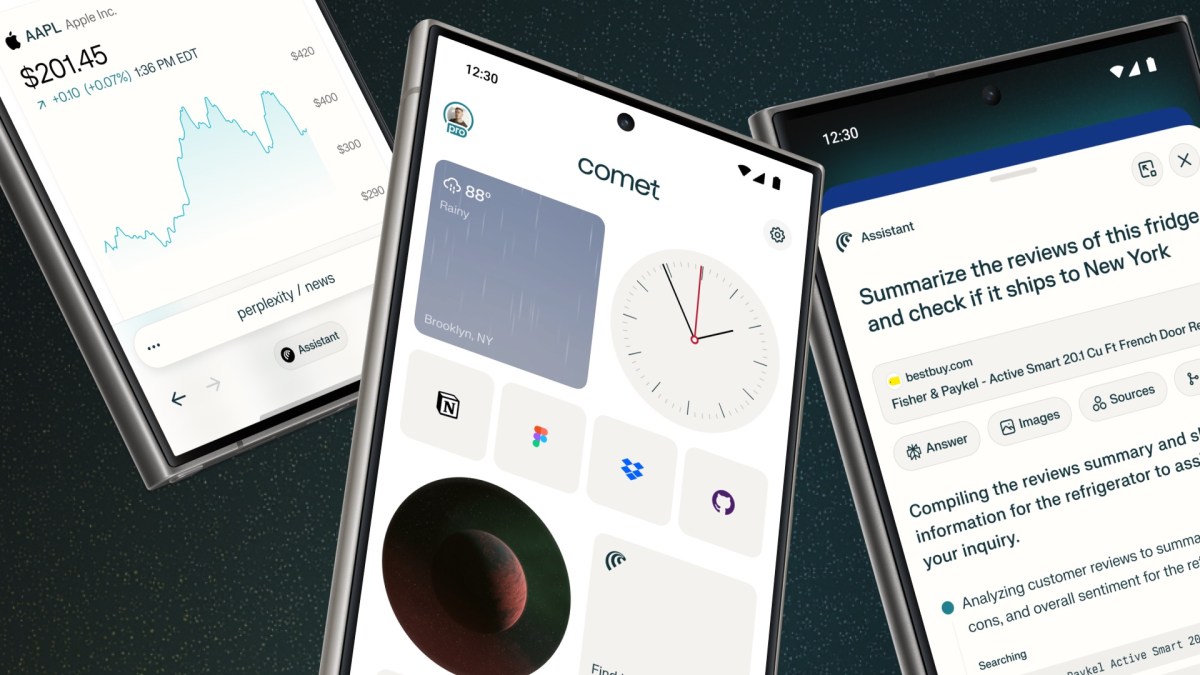Perplexity Expands AI-Powered Comet Browser to Android

Key Points
- Perplexity launches the AI‑driven Comet browser on Android.
- Users can set Perplexity as the default search engine and interact via voice or text.
- The assistant can research, shop, and summarize across multiple open tabs.
- An integrated ad blocker is included in the Android version.
- Future updates will add a conversational agent, shortcut actions, and a password manager.
- An iOS version is planned for the near future.
- The launch follows earlier desktop releases and reflects strong OEM interest.
- Security experts warn of AI‑assistant vulnerabilities; Perplexity acknowledges the risk.
Perplexity has launched its AI‑centric Comet browser on Android, bringing the majority of the desktop version’s capabilities to mobile. Users can set Perplexity as their default search engine, interact with tabs via voice or text, and let the built‑in assistant research, shop, and summarize across open pages. The Android app also ships with an integrated ad blocker. Upcoming updates promise a conversational agent, shortcut actions, and a full password manager, while an iOS version is slated for the near future. The move follows earlier desktop releases and reflects strong carrier and OEM interest.
Launch Overview
Perplexity introduced the Comet browser for Android, extending the AI‑driven experience it first offered on desktop in July. The mobile rollout delivers most of the desktop features, allowing Android users to tap into the same AI‑powered search and assistance capabilities that have defined the company’s recent product line.
Key Features
Comet on Android lets users set Perplexity as their default search engine, making AI‑enhanced queries the norm for everyday browsing. The assistant can be summoned by mentioning open tabs, enabling users to ask questions about the content of any page without leaving the browser. A voice mode expands this interaction, allowing spoken queries about all active tabs. The assistant can also summarize information across multiple pages, providing concise overviews without manual cross‑referencing.
Beyond search assistance, the browser can act on the user’s behalf—researching topics, locating products, and even completing purchases. Users can view a transparent log of the assistant’s actions, ensuring clarity about what the AI is doing. An integrated ad blocker further improves the browsing experience by removing unwanted advertisements.
Future Roadmap
Perplexity outlined several enhancements slated for upcoming releases. A conversational agent will enable more sophisticated cross‑site searches and direct actions, while shortcut features will let users trigger common tasks with minimal effort. A fully functional password manager is also on the horizon, aiming to consolidate security and convenience within the same AI‑driven environment. While Android takes priority now, the company indicated that an iOS version will follow soon.
Industry Context
The launch positions Perplexity among a growing roster of firms exploring AI‑infused browsers. Companies such as OpenAI, Opera, and The Browser Company have introduced their own AI browsers, though many remain desktop‑focused. The Browser Company’s Arc Search arrived on mobile last year, but its newer project, Dia, currently lacks a mobile offering. These efforts collectively signal a broader ambition to challenge entrenched browsers like Chrome and Safari with AI‑enhanced alternatives.
Security Considerations
Security experts have voiced concerns about potential vulnerabilities inherent in AI assistants, noting that malicious actors could exploit these agents. Perplexity has addressed these worries in a blog post, acknowledging the evolving risk landscape and emphasizing the need for rethinking security from the ground up as AI capabilities expand.
Partnerships and Market Strategy
Android’s prominence in Perplexity’s strategy stems from high demand among carriers and original equipment manufacturers (OEMs). Although the company has not announced any formal partnership for the Comet browser, it previously collaborated with Motorola to preload the Perplexity app on devices. Whether this relationship will extend to the new browser remains unspecified.